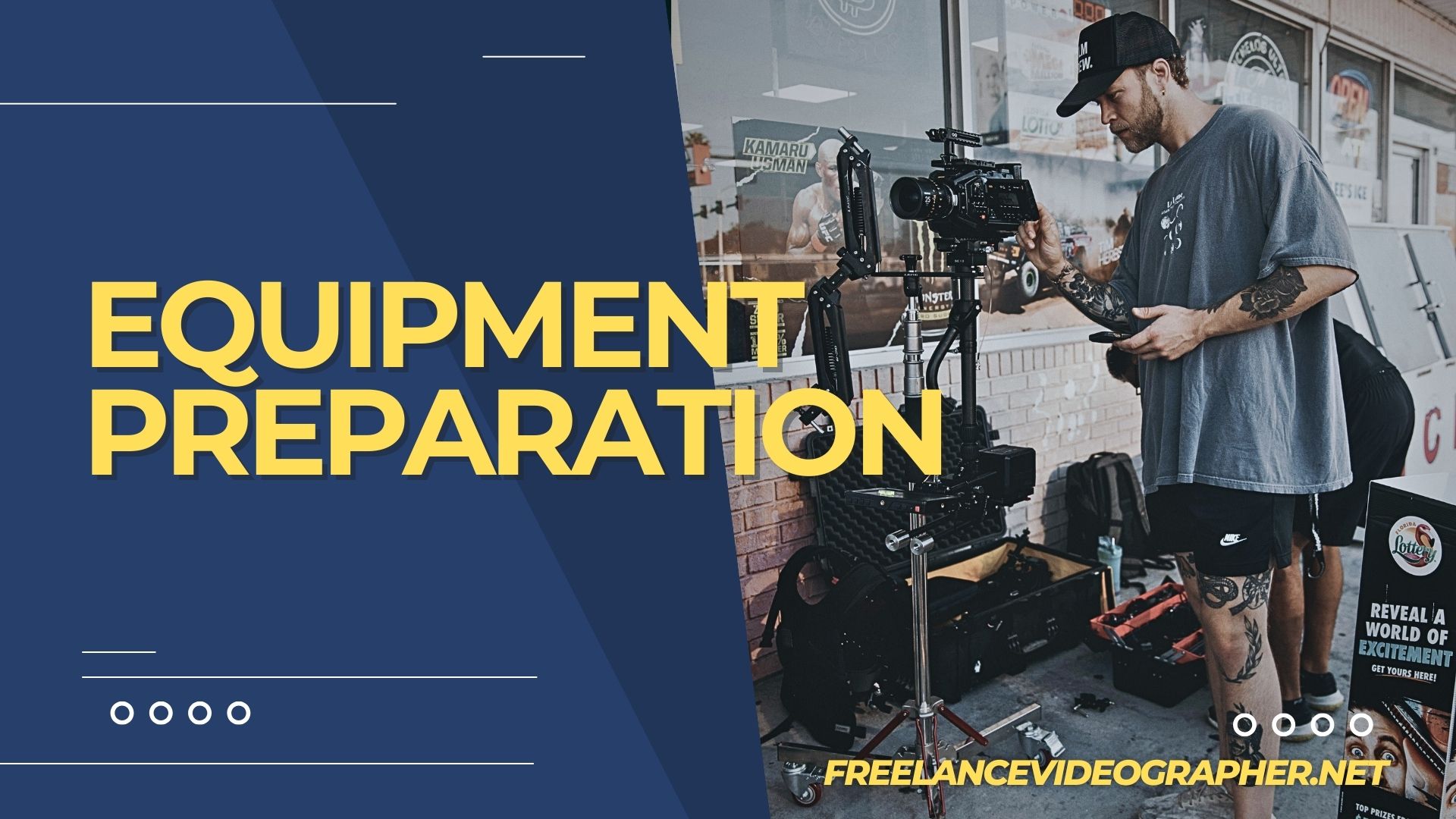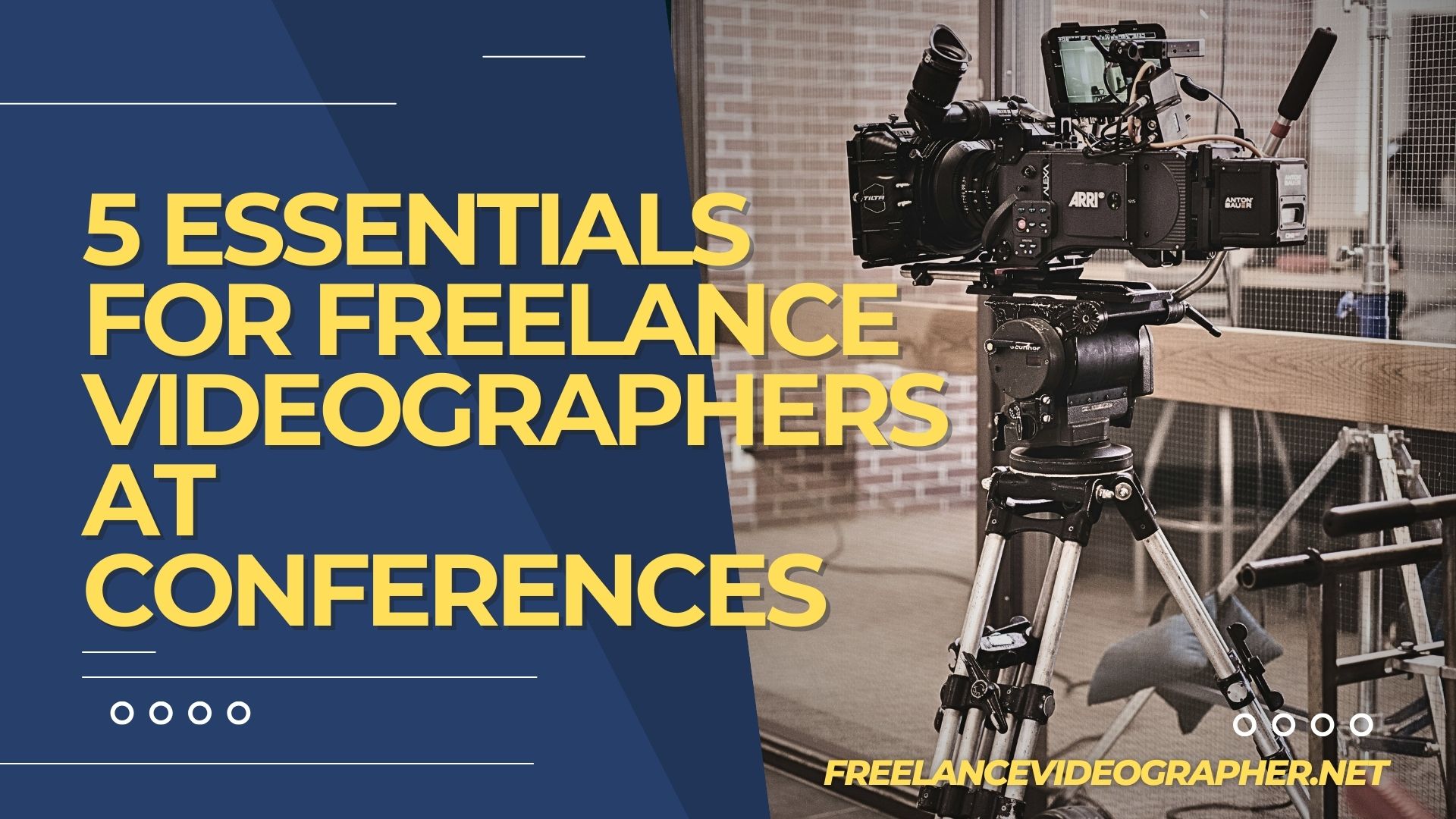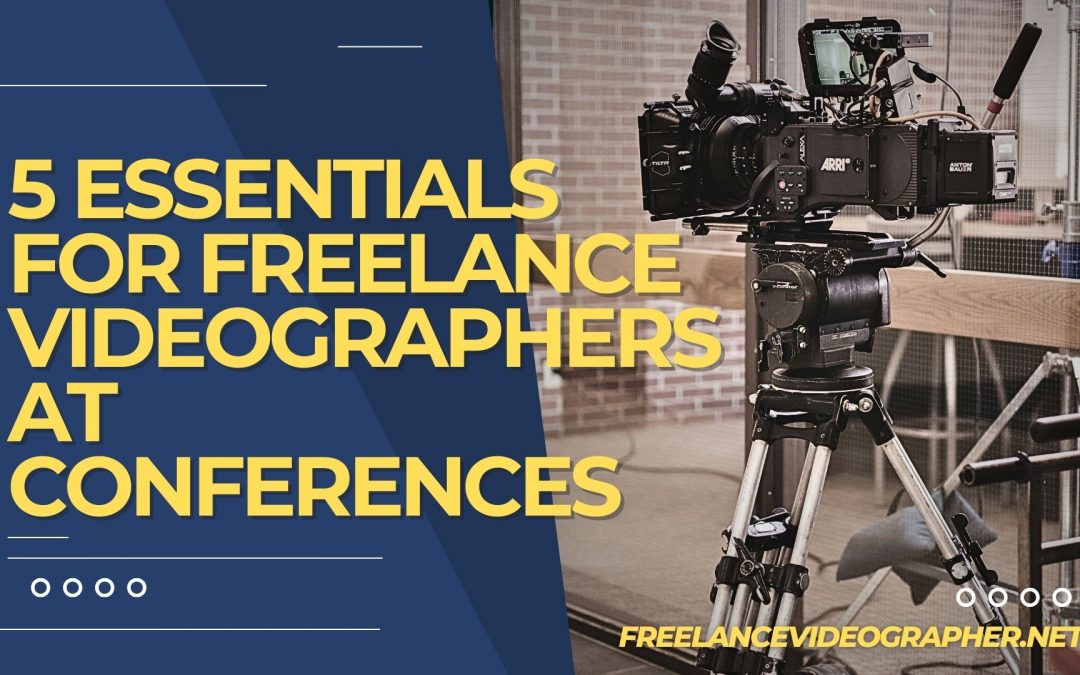As freelance videographers, navigating the nuances of capturing compelling content at conferences can be both challenging and captivating. From capturing crisp visuals to ensuring pristine audio, the essentials for thriving in this environment are vast and varied. But what truly constitutes the quintessential toolkit for success in this sphere? Join us as we dissect the five indispensable essentials that elevate the craft of freelance videographers at conferences, providing a comprehensive roadmap for mastering this dynamic field.
Key Takeaways
- Proper equipment preparation is crucial for freelance videographers at conferences, including creating checklists, testing cameras, bringing backup equipment, and familiarizing with the venue and lighting conditions.
- Coverage planning involves reviewing areas and activities requiring video coverage, coordinating with event organizers, and creating shot lists and storyboards.
- Ensuring high-quality audio is important, which can be achieved by selecting the right recording tools, incorporating wireless or lavalier microphones, using a pop filter, and monitoring audio levels.
- Networking opportunities should be maximized by attending conferences, participating in networking sessions, utilizing social media, joining professional organizations, and offering discounted services to build relationships.
Equipment Preparation

As freelance videographers preparing for conferences, we meticulously create and review detailed equipment checklists to ensure that all necessary gear is accounted for. Quality camera equipment is essential for capturing high-quality videos, so we test and ensure that our cameras are in proper working condition before the event. In addition to the primary camera, we always bring backup equipment such as extra batteries, memory cards, and cables to be prepared for any technical issues that may arise. Familiarizing ourselves with the venue and its lighting conditions allows us to determine if additional lighting or stabilization equipment is needed to maintain the quality of our work. We pack and organize our equipment in a way that allows for easy access and quick setup during the conference, ensuring that we are ready to capture the best footage possible.
Coverage Planning
Reviewing the specific areas and activities requiring video coverage at the conference, we meticulously plan the schedule and logistics for capturing different sessions, keynotes, and activities. By coordinating with event organizers, we gain insights into the layout, timing, and important moments for coverage. This enables us to allocate resources and equipment effectively, ensuring comprehensive coverage. Creating a shot list and storyboard helps us stay organized and capture all essential elements. As Freelance Videographers, our coverage planning is essential for delivering high-quality video production. It allows us to cater to potential clients looking to showcase their events on platforms like YouTube. With our DSLR cameras, we aim to capture compelling raw footage, ensuring that we meet the diverse needs of shooting videos at conferences.
Audio Quality
Carefully selecting high-quality audio recording tools is essential for ensuring clear sound in our videos at conferences. As freelance videographers, we understand the importance of audio quality in producing high-quality video content. When using a DSLR camera, investing in wireless microphones or audio recorders can significantly improve the audio capture, especially for interviews and ambient sounds. Additionally, incorporating a lavalier microphone or boom microphone allows flexibility for different recording needs. To further enhance audio quality, using a pop filter reduces plosive sounds, while monitoring audio levels using headphones ensures balanced sound. Consider investing in reputable video microphones like Røde Microphones to elevate the overall quality of your video content. By prioritizing audio quality, we can deliver conference videos that not only look great but also sound professional and engaging.
Networking Opportunities
Attending industry conferences and events presents freelance videographers with valuable opportunities to connect with potential clients, collaborators, and industry professionals. Actively participating in networking sessions and workshops allows us to build relationships and expand our professional network. Utilizing social media pages and online platforms is crucial for engaging with fellow videographers and potential clients. Joining professional organizations and associations in our field provides access to resources, mentorship, and additional networking opportunities. Offering our services for free or at a discounted rate can help build relationships and gain exposure within the industry. By spreading the word about our videography business and showcasing our work through our DSLR camera, we can create networking opportunities that may lead to securing the full-time job of our dreams.
Post-Event Deliverables
Upon completion of the event, we ensure the timely delivery of the final edited videos and any additional materials to the client, adhering to their specific file format requirements and ensuring the quality and coherence of the final product. This includes providing a clear timeline for delivery, potential revisions, and edits. Post-Event Deliverables also involve transferring all raw footage and materials to the client for their own use or archives. It’s essential to clarify any rights to use the final product for promotional or portfolio purposes. As freelance videographers, investing time and energy in better quality equipment, such as a DSLR camera, is crucial to meeting client expectations. It’s important to make sure that the investment in gear aligns with the needs of conference videography and the subsequent post-event deliverables.
Frequently Asked Questions
What Equipment Do I Need as a Videographer?
As freelance videographers, we need camera gear, audio equipment, lighting setup, editing software, tripod options, lenses selection, storage solutions, backup plan, and portable power. These essentials ensure high-quality footage and efficient shooting at conferences.
What Do You Need to Be a Freelance Videographer?
To be a freelance videographer, we need effective client communication, cutting-edge editing software, networking at events, a meticulous storyboarding process, mastery of lighting techniques, top-notch audio equipment, savvy time management, a stellar portfolio, and adept negotiating skills.
How Do I Market Myself as a Freelance Videographer?
To market ourselves as freelance videographers, we focus on branding strategies, networking opportunities, online portfolio, social media presence, and client testimonials. We capitalize on industry events to showcase our video editing skills, target audience, and pricing structure.
What Do I Need to Get Into Videography?
We need camera basics, lighting techniques, audio essentials, editing software, storytelling skills, shooting tips, client communication, networking opportunities, and portfolio building to excel in videography. It’s a dynamic craft that demands innovation.
Conclusion
In conclusion, as freelance videographers, we must ensure we have the necessary camera equipment, plan our coverage effectively, prioritize audio quality, take advantage of networking opportunities, and deliver exceptional post-event content. By being prepared, strategic, and focused on quality, we can elevate our work and stand out in the competitive conference videography industry. With the right tools and mindset, we can create impactful and memorable video content for our clients.

